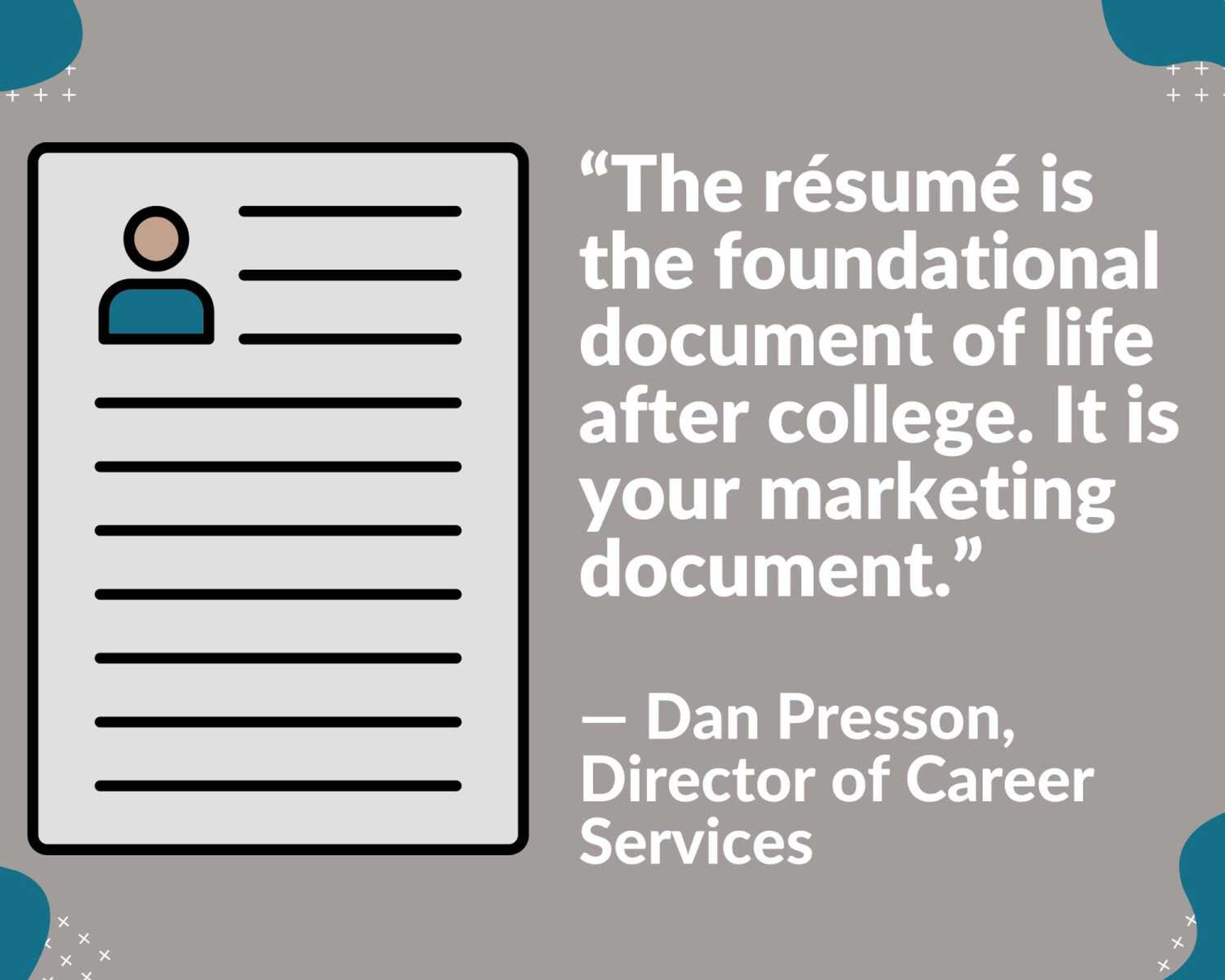Who are you in the professional world, and how do you let employers know? A well-written résumé and well-crafted portfolio can be the difference between you and another candidate, especially for college students and recent graduates.
A résumé and portfolio are similar, but have several key differences. A résumé is a presentation of your experience, education and other relevant qualifications. A portfolio is usually more creative, and presents work in areas such as graphic design, video, audio and more.
Director of Career Services Dan Presson helps students build résumés to be the best they can be and said he reviews approximately 1,000 résumés per year.
“The résumé is the foundational document of life after college. It is your marketing document,” Presson said.
There is a high standard set for résumés by employers and businesses, due to the amount of competition in the hiring process, Presson said.
He said a reviewer will form a bias towards an interview candidate within the first six to eight seconds of looking at a document, on average.
“We need to focus on showcasing your relevant, connectable experience in that six-second window above the halfway point on the [first] page, to make sure we can really punch somebody in the face with relevance,” Presson said.
Presson said college is an extremely important asset when students are trying to build their résumés.
“College is an environment that builds a résumé, whether it’s through relevant coursework, research with a faculty member, on-campus engagement, internships or volunteerism; you have this college environment that is built for students to gain relevant experience,” Presson said.
Mass media instructor and SECreative advisor Michael Simmons was formerly a creative director who reviewed résumés and portfolios.
Simmons said it is important to craft a résumé based on what career path you have chosen.
“Be very attentive to answering the credentials that are stated in the job description,” Simmons said. “[Use] language that’s oriented towards what you can do for the organization more than being all about you. It demonstrates that the applicant understands they’re there to produce value to do a job.”
Simmons said portfolios should show your best work and what an individual can provide for a company.
“Quantity will not win the day; quality will,” Simmons said.
Simmons said it is OK if the bulk of the work displayed in a student’s portfolio is classwork, as long as the content’s purpose is clear. He also advised students to get involved in student media, student organizations and internships and other activities to fill their résumés.
Simmons said it’s also important to use the resources available to network with professors or their professional contacts.
“Everybody says it’s not what you know, it’s who you know, and I don’t think that’s actually true. I think what’s true is who knows you,” Simmons said. “You can say you know somebody, but unless they know you well enough that they can vouch for you, it doesn’t really mean that much.”
Corporate communications and political science double major Logan Phillips will graduate in December and has spent the past year finalizing his résumé. Phillips said after interning with the City of Cape Girardeau, he began to tailor and build his résumé to best fit his intended career path, local government.
Phillips said he ran into some problems when creating his résumé, due to the number of organizations he was involved in on campus. He could not fit every organization on his résumé, but still wanted to list what he had been involved in. He utilized Career Service's advice on what information to include and what to leave out.
Phillips said it is important to reach out to professors, faculty and staff to understand how they got to the place they are now and how they can help students.
“I look at my mentors, and I say, how did you get to this position, and they tell me their story. Those [stories] are always very helpful to me, and I also ask if I can look at their résumé,” Phillips said.
Phillips said he has utilized Career Services assistance in making his résumé better, and has also reached out to alumni from another Sigma Nu chapter for help.
“There are a lot of resources [out there], it’s just a matter of students finding them,” Phillips said.
Students can contact Career Services to set up a résumé assistance appointment by calling (573) 651-2583 or emailing dpresson@semo.edu.






